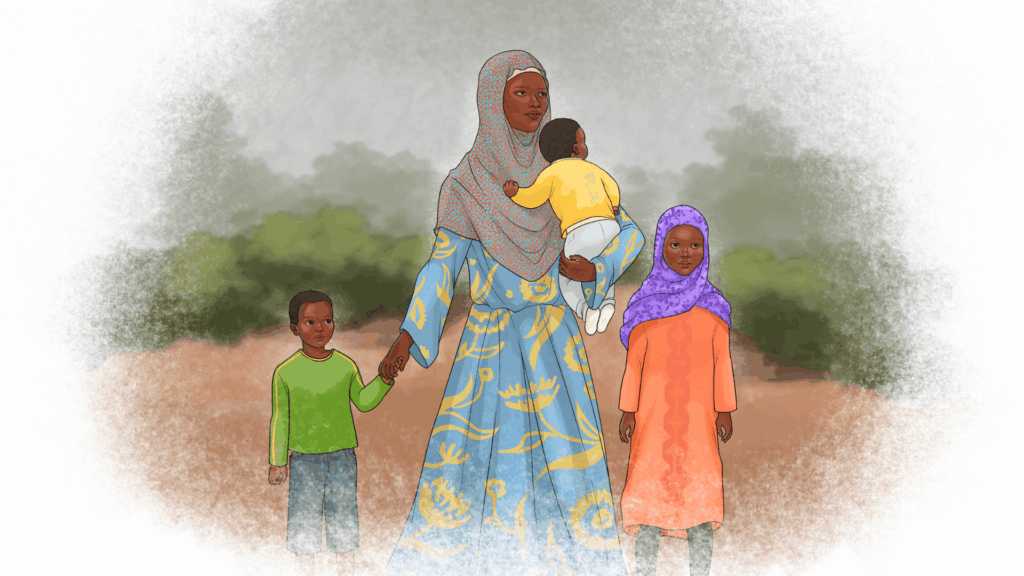By Karla Thorpe, Vice President, Programs and Priorities, Mental Health Commission of Canada.
The statistics are staggering, but they represent real human lives: 117 million people worldwide have been forcibly displaced from their homes due to war, famine, and other horrific conditions. To put this in perspective, that’s four times the number displaced during the Second World War. At this year’s International Association for Suicide Prevention conference, experts gathered to address a critical question: How do we support the mental health of those who have lost everything?
The Scale of the Crisis
The numbers tell only part of the story. Two-thirds of asylum seekers find refuge not in wealthy nations like Canada, but in low and middle-income countries that often lack the resources to meet their overwhelming needs. These displaced populations face a perfect storm of challenges: shrinking settlement options, limited support services, and a desperate shortage of culturally appropriate care.
For many refugees, the trauma doesn’t end when they reach safety. Prolonged exposure to violence, separation from loved ones, and the uncertainty of displacement create conditions where suicidal thoughts and behaviours become tragically common. Yet we lack comprehensive data on suicide within displacement camps, partly because refugees often fear that reporting mental health struggles could jeopardize their immigration prospects or those of their families.
Understanding Complex Needs
The mental health challenges facing refugees extend far beyond clinical symptoms. Families torn apart by circumstance may find themselves scattered across different camps or even different countries. The trauma manifests differently across demographics and cultures, requiring nuanced responses rather than one-size-fits-all solutions.
Men often struggle most with feelings of powerlessness, finding healing through employment opportunities that restore their sense of purpose and ability to provide for their families. Women face distinct vulnerabilities, including protection from violence while trying to create stability and hope for their children. Children, who make up approximately 40% of all refugees, grapple with profound losses: family members, security, and often their childhood itself.
It bears repeating what should be obvious but sometimes gets lost in clinical discussions: even the most sophisticated mental health interventions fail without access to basic necessities like food, water, and medicine.
Despite overwhelming challenges, the conference revealed inspiring examples of both systematic programs and grassroots innovations making real differences in refugees’ lives.
Structured Interventions
Throughout the conference, we heard about promising practices being implemented systematically across different countries and innovative, grassroots initiatives being spontaneously enacted to respond to specific local needs. The World Health Organization’s “Problem Management Plus” program trains refugee volunteers to deliver brief cognitive behavioural therapy interventions, creating a sustainable model that builds community capacity while addressing immediate needs.
Similarly, the “Contact and Safety Planning” (CASP) program offers a cost-effective approach: screening to identify those at highest suicide risk, then working directly with these individuals to develop personalized safety plans.
Community-Led Solutions
The most enheartening stories emerged from refugees themselves. Across displacement sites, people are organizing healing and listening circles for those sharing common experiences or challenges. Religious leaders, teachers, and sports coaches are stepping up to support overstretched health professionals. Women are training other women in low-intensity interventions to help those who cannot access care, conducting check-ins via WhatsApp, and providing peer support through text messages.
These organic solutions represent more than resourcefulness; they embody a fundamental truth that conference speakers repeatedly emphasized: refugees are resilient, understand their own needs, and possess valuable insights about healing and recovery.
Redefining Support
A central theme emerged throughout the discussions: supporting refugee mental health requires a power shift from traditional top-down service delivery. Effective interventions must be co-designed with refugee populations, ensuring cultural relevance and community buy-in. Many of the most impactful programs are also surprisingly low-cost, challenging assumptions about resource-intensive treatment models.
But perhaps the most important insight that stuck with me concerns our fundamental approach. After experiencing profound inhumanity throughout their journeys, refugees encounter a critical moment when receiving support: our response can either compound their dehumanization or offer compassion, care, and genuine connection. In a world that has shown them cruelty, our interactions become opportunities to demonstrate that humanity still exists.
Lessons for Canada
How can Canada apply these international insights to strengthen our own refugee support systems?
Stability as Foundation: Following tremendous upheaval and uncertainty, refugees need predictability. Offering permanent status rather than temporary measures provides crucial emotional stability during recovery.
Eliminating Barriers: We must address inequitable access to services, including waiting periods for health coverage that leave vulnerable populations without essential care during critical adjustment periods.
Shifting Public Narrative: Public education campaigns should help Canadians understand the global humanitarian crisis and reframe refugees not as burdens, but as resilient individuals deserving of support and capable of tremendous contributions to our communities.
A Call for Compassion
The refugee mental health crisis demands more than policy responses; it requires a fundamental commitment to recognizing the humanity in every displaced person. As we’ve learned from innovative programs worldwide, the most effective interventions often spring from refugees themselves, given proper support and respect for their expertise about their own experiences.
Globally, we can and must do better. The question isn’t whether we have the resources to support 117 million displaced people; it’s whether we have the collective will to demonstrate that compassion and human dignity remain powerful forces in our world.





